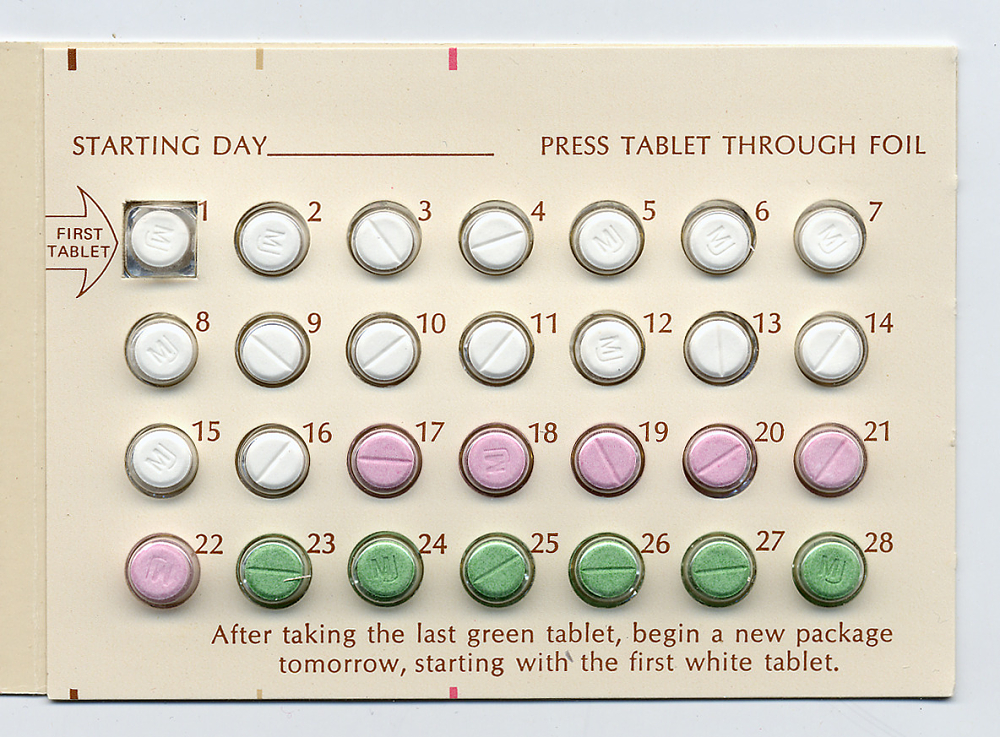
A Pill a Day keeps your Periods Away…
by Yash Saboo September 27 2017, 4:08 pm Estimated Reading Time: 3 mins, 33 secs“Why the hell am I bleeding every three weeks if I don't have to be?” is the question most women on hormonal birth control pills ask. ‘Withdrawal bleeding’ which mimics a period along with menstruation-related symptoms like cramping and diarrhoea, is triggered by the Placebo pills. If you have taken oral contraception, you might be familiar with the concept of placebo pills – a week’s worth of inactive tablets taken at the end of the month.
Placebo pill is an inert substance, typically a tablet, capsule or another dose form that does not contain an active drug ingredient. For example, placebo pills or liquids may contain starch, sugar, or saline. Physical placebo or “sham” treatments have also been used, such as inactive acupuncture devices.
_.jpg)
John Rock, the American obstetrician and gynaecologist, best known for the significant role he played in the development of the first birth control pill ‘Envoid’, colloquially called it ‘the pill’. In 1960, the pill was approved by the FDA and eight years later, the Pope publicly rejected Rock's argument, declaring all forms of ‘artificial’ contraception to be against church doctrine. Rock was a pioneer in in-vitro fertilization and sperm freezing. He helped many of his patients achieve pregnancy and became known as a ‘ground-breaking infertility specialist’.
Rock was a devout Catholic who helped develop the birth control pill. This byzantine, and slightly confusing belief matters because he was convinced that the church would accept the pill as a form of ‘natural’ contraception if it were presented in the right light. Because the pill contains progestin - a hormone naturally released after ovulation, during the ‘safe period’ - Rock considered it a sort of scientific extension of the rhythm method. Rock and his collaborator Gregory Pincus thus decided that the pill should be subscribed in four-week cycles in order for it to be palatable to the church.

By the mid-60s, pharmaceutical companies had started selling the pill in dial-shaped packs, with clear indications illustrating when women should commence their monthly withdrawal bleeding. Mead Johnson & Company of Evansville, Indiana, produced Oracon-28 brand oral contraceptive in 1974. Oracon was a 28-pill sequential oral contraceptive that became the first to include placebo pills in its packaging. Oracon's most documented motivation behind the first placebo pills was to help women ensure that they were taking their pills correctly.

Although most of the oral contraception brands include inactive pills in their packages, there's no actual medical justification for this, gynaecologists have deemed withdrawal bleeding medically unnecessary for years now. This formula - three weeks of hormonal pills, followed by one withdrawal week, complete with the requisite bleeding—remained unchanged for over 40 years. Then, in 2003, the drug company Barr released Seasonale. This was the first oral contraceptive to give women the option of foregoing monthly withdrawal bleeding; it contained 84 hormone pills and seven placebo pills. Women using this method would experience withdrawal bleeding just four times a year—or once per season, as the drug name intimated. Four years later, the FDA approved Lybrel, the first oral contraceptive to offer continuous active pills with no breaks for withdrawal bleeding whatsoever.
A study by the Cochrane organization found that women on extended cycle pills ‘fared better in terms of headaches, genital irritation, tiredness, bloating, and menstrual pain’ than those on pills with monthly bleeding.
A vocal group of feminist activists argued with the assessment, that skipping your periods is unnatural and that marketing menstrual suppression products sends the wrong message to girls: that there is something wrong with menstruating. “These messages underscore that women's natural functions are defective, dysfunctional, and in need of medical intervention,” Chris Bobel, a women's studies professor, and author, told Ms. magazine in 2010, neatly summing up this line of criticism – “How is this feminist?”
Today, the science is more settled, though there hasn't been a long-term study on the continuous use of oral contraceptives yet. But based on data from the long-term use of non-extended cycle birth control pills, which are chemically the same as extended cycle contraceptives, gynaecologists have largely reached the conclusion that the practice is safe





-173X130.jpg)
-173X130.jpg)


-173X130.jpg)
-173X130.jpg)
-173X130.jpg)